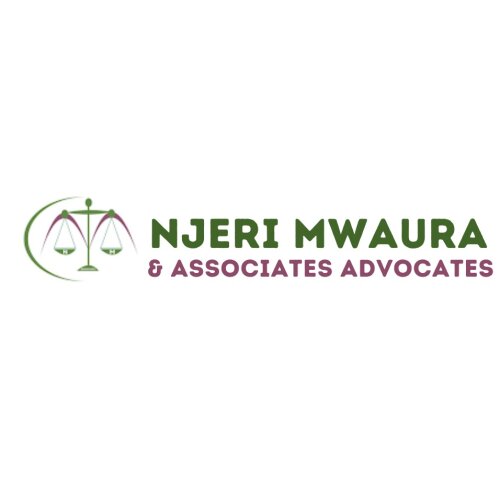Best Franchising Lawyers in Ruiru
Share your needs with us, get contacted by law firms.
Free. Takes 2 min.
List of the best lawyers in Ruiru, Kenya
About Franchising Law in Ruiru, Kenya
Franchising is a method of expanding a business through licensing relationships. In Ruiru, Kenya, franchising has gained popularity as a method of business expansion, enabling local entrepreneurs to operate under the brands of established companies. This has been catalyzed by the town's economic growth and its strategic location within the Nairobi Metropolitan Area. Franchising law in Ruiru is driven by national regulations, which provide a legal framework for both franchisees and franchisors. This legal framework helps ensure that all parties adhere to the set terms, contributing to a fair and smooth operation.
Why You May Need a Lawyer
Seeking legal advice is crucial in various situations concerning franchising. Here are some common scenarios:
1. Franchise Agreement Review: Before entering into a franchise agreement, a lawyer can help you understand the document's terms and conditions to avoid potential pitfalls.
2. Contract Negotiation: A lawyer can assist in negotiating terms that are more favorable or realistic for your business goals and capabilities.
3. Compliance Support: Ensuring adherence to local franchising laws and regulations is critical. A legal expert can aid in maintaining compliance.
4. Intellectual Property Issues: Legal assistance may be needed to protect intellectual property rights and understand licensing agreements.
5. Conflict Resolution: Disputes between franchisees and franchisors can arise, requiring a lawyer to mediate or represent your interests in court.
Local Laws Overview
Ruiru complies with Kenyan franchising laws, which include several key aspects:
1. The Competition Act, 2010: This act governs the fair competition in the market, including franchising. It prevents anti-competitive practices and encourages business fairness.
2. Consumer Protection Act, 2012: Protects consumers’ rights, which also applies to services and goods offered through franchises.
3. Intellectual Property Laws: Governed under the Kenyan Industrial Property Act, 2001, these laws ensure trademarks and brand identities are protected within franchise agreements.
4. Franchise Disclosure Document (FDD): Though not mandatory in Kenya, having a comprehensive FDD can help address potential legal issues and clarify expectations upfront between franchisors and franchisees.
Frequently Asked Questions
What is franchising?
Franchising is the practice of licensing a business model or brand from a franchisor to a franchisee, allowing the franchisee to operate under the brand.
Are there specific laws regulating franchising in Kenya?
While no specific franchise law exists, various general commercial laws and certain parts of the Competition Act are applicable to franchising.
What should a franchise agreement include?
A franchise agreement should cover fees, territory, obligations of both parties, duration, renewal conditions, terms of termination, and dispute resolution methods.
How can I ensure a franchise is legitimate?
Conduct thorough research on the franchisor, consult with existing franchisees, and seek legal help to review the franchise agreement.
Do I need a lawyer for a franchise agreement?
Yes, having legal counsel can help you understand the agreement thoroughly and protect your interests.
What are the fees involved in franchising?
Common fees include initial franchise fee, ongoing royalty payments, marketing fees, and sometimes equipment purchases.
Can a franchisor terminate my franchise agreement?
Yes, under certain conditions like breach of agreement terms. Understanding these conditions is critical before signing the agreement.
How do I address disputes with my franchisor?
Initial steps should involve direct negotiation, but mediation or legal action may be needed if disputes persist.
What is the role of intellectual property in franchising?
Intellectual property allows franchisees to use a franchisor's brand, trademarks, and proprietary systems, essential to the franchising model.
What support should I expect from a franchisor?
Support often includes training, marketing strategies, operational guidelines, and sometimes equipment or inventory.
Additional Resources
Several resources and organizations can provide valuable insights and support for franchising in Ruiru:
Kenya Franchise Association (KFA): Offers support and networking opportunities for franchise businesses.
Kenya Intellectual Property Institute (KIPI): Facilitates the registration and protection of trademarks and patents.
Competition Authority of Kenya (CAK): Monitors and regulates market competition, ensuring fairness in business practices.
Next Steps
If you need legal assistance in franchising, consider the following steps:
1. Research: Understand the basic concepts of franchising and your specific legal needs.
2. Contact a Lawyer: Reach out to a lawyer specializing in franchise law to discuss your case.
3. Prepare Documentation: Have all necessary documents and information ready for your consultation.
4. Negotiate and Review: Work with your lawyer to negotiate and review any franchise agreements thoroughly.
5. Stay Informed: Keep abreast of any changes in the laws that might affect your franchise agreement or operations.
Lawzana helps you find the best lawyers and law firms in Ruiru through a curated and pre-screened list of qualified legal professionals. Our platform offers rankings and detailed profiles of attorneys and law firms, allowing you to compare based on practice areas, including Franchising, experience, and client feedback.
Each profile includes a description of the firm's areas of practice, client reviews, team members and partners, year of establishment, spoken languages, office locations, contact information, social media presence, and any published articles or resources. Most firms on our platform speak English and are experienced in both local and international legal matters.
Get a quote from top-rated law firms in Ruiru, Kenya — quickly, securely, and without unnecessary hassle.
Disclaimer:
The information provided on this page is for general informational purposes only and does not constitute legal advice. While we strive to ensure the accuracy and relevance of the content, legal information may change over time, and interpretations of the law can vary. You should always consult with a qualified legal professional for advice specific to your situation.
We disclaim all liability for actions taken or not taken based on the content of this page. If you believe any information is incorrect or outdated, please contact us, and we will review and update it where appropriate.








